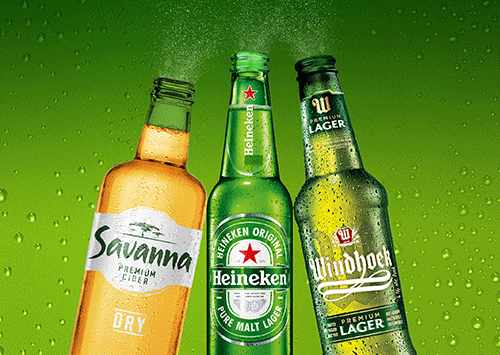The acquisition of Namibia Breweries Limited Investment Holdings and Distell Group Holdings by a massive Dutch brewer, Heineken International BV, has been approved with certain conditions by the Namibian Competition Commission (NaCC).
The approval means Heineken BV will effectively gain a controlling share of Namibia Breweries Limited (NBL) to ultimately place the local brewer in a position to be more competitive with global brands.
The NaCC approved the merger at a meeting held on 5 September 2022.
Heineken is the second biggest beer producer in the world, and it is active in the production, marketing and distribution of beer and other beverages.
The NACC stated it conducted a careful analysis of the proposed merger, which included extensive consultations with customers, competitors and other relevant industry stakeholders.
“The transaction entails Heineken BV increasing its shareholding in NBL Investment Holdings (Pty) Ltd and thereby acquiring control over NBL Investment Holdings (Pty) Ltd, which is the holding company of Namibia Breweries Ltd (NBL). The transaction further entails Heineken BV through NBL acquiring ` Namibia Ltd, a subsidiary of the Distell Group Holdings Ltd,” the NaCC confirmed via a statement issued yesterday by its spokesperson, Dina //Gowases.
NBL produces, markets, distributes and supplies a range of beers, and it is the local supplier of certain Heineken brands, specifically Heineken Pure Malt Larger and Strongbow cider. The first condition set by the NaCC is a moratorium on retrenchments by way of an employment condition, given the operational similarities of functions and positions at NBL and Heineken.
The condition states that following implementation, no retrenchments of employees below management level of the merged entity may be made for five years in Namibia as a result of the merger.
Another condition states the merged entity has to ensure retailers are free to allocate up to 10% of refrigeration space in each beverage cooler owned by NBL or Distell Namibia in any on and off-consumption outlet in the country.
“This allocation right shall apply only to products manufactured or packaged in Namibia by Namibian-owned and Namibian-controlled companies. The existing NBL commercial policy must be amended, and the merged entity shall educate its employees and inform the market of the new changes to its commercial policy,” the NaCC stipulated.
This decision stems from a NaCC analysis that identified entry barriers as a concern, particularly the ability of small Namibian companies to enter the market.
NBL’s commercial policy currently prohibits retailers from placing other products in NBL branded refrigerators.
Furthermore, the NaCC stated that an analysis of the proposed merge revealed overlap in the flavoured alcoholic beverages (FAB) category in respect of Heineken and Distell.
To remove the overlap, the Commission imposed a condition designed to remove the overlap and ensure competition is maintained in the FAB market category post-merger.
This condition states that within one year, the merged entity will license the rights to produce, market, distribute and sell Heineken’s Strongbow brand in the territory to a purchaser.
“The divestiture of the Strongbow brand will take the form of a perpetual, royalty-free license for the use of the Strongbow brand. The Commission further directed the merged entity not to engage in any activity that could reduce the value of Strongbow, hinder its sales and render it an ineffective competitive product. Strongbow must be divested to an entity that does not have any relationship with the acquiring group and its subsidiaries,” the NaCC specified.
The Commission noted that all Distell products are manufactured in South Africa and imported into Namibia.
The Commission determined that products consumed in Namibia must be manufactured or at least bottled in Namibia – and in so doing create additional employment and contribute to further industrialisation and economic growth.
In addition, the competition regulator specified the merged entity must establish a significant proportion of Distell’s current South African production locally for products supplied in Namibia.
This must be backed by significant investment in existing and new production capacity at NBL’s facilities.
Moreover, the Commission stipulated that the merged entity shall continue sourcing the input products locally and should continue sourcing services procured from Namibian-owned businesses.
The NaCC also determined that the merged entity should not abuse its market dominance by requiring Namibian customers to purchase products within one product category (e.g. beer products) on the condition they also purchase products within any other product categories (e.g. wines).
The Commission also imposed a condition requiring the establishment of a micro, small and medium enterprise (MSME) Development Fund that will be used to build the capacity of selected small businesses to make them sustainable.
“The MSME Development Fund will be used to develop, amongst others, technical trade and operational skills, end-to-end business management skills, digital, technology or related skills; or build capacity in areas of business directly or indirectly related to servicing the merged entity, including but not limited to the supply of technical services (e.g. stainless steel welding); the supply of secondary packaging (e.g. paper or plastic labels); the supply of advertising and promotion(al) services (e.g. manufacture of branded apparel or other branded items),” the NaCC stated.


